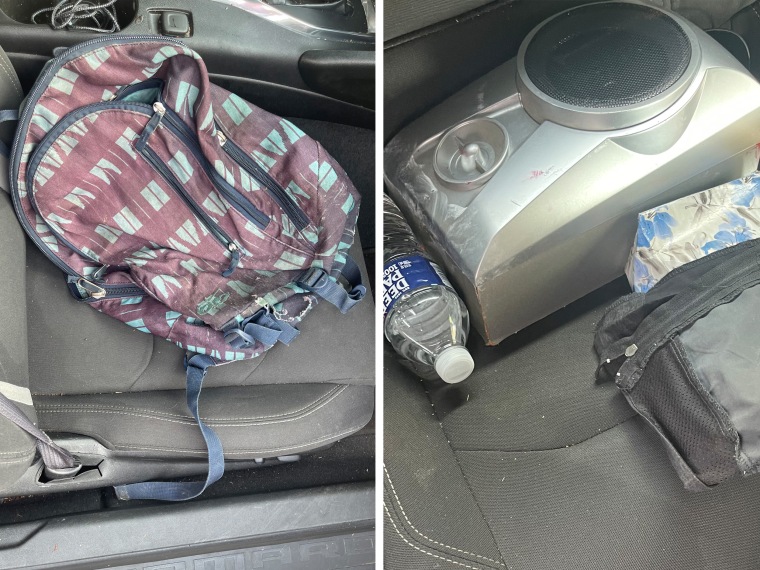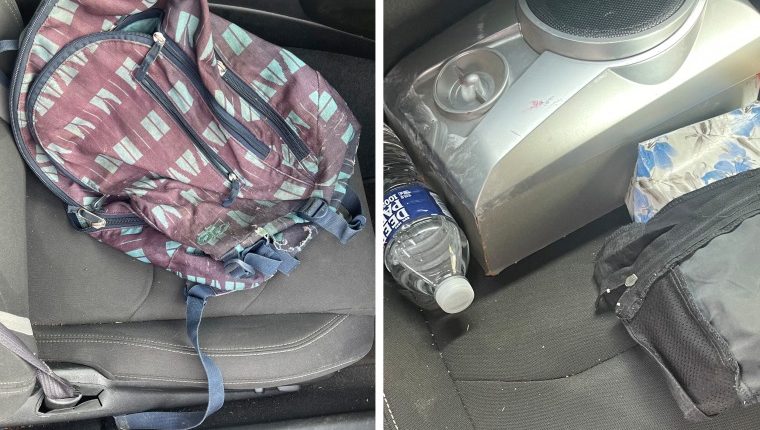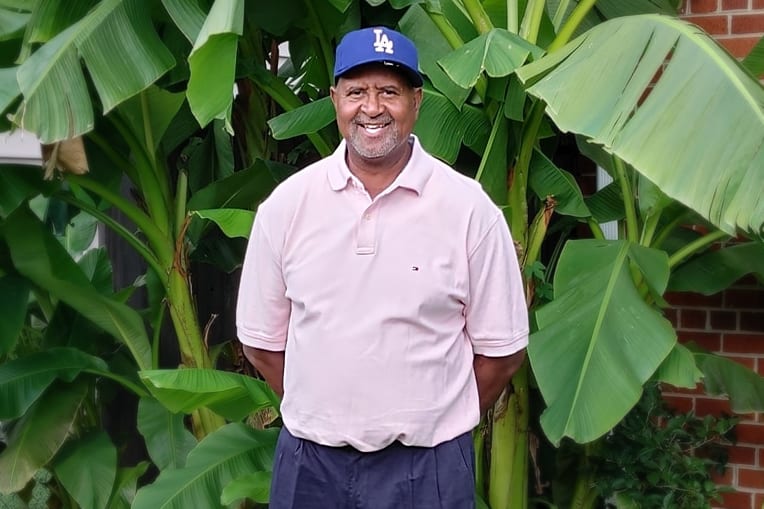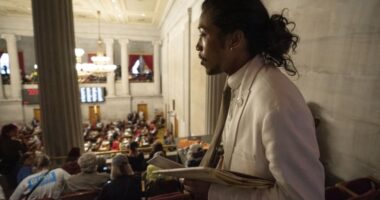When the first officer arrived on the scene, Rogers, who is not a medical professional, told the officer that he thought Newkirk was dead, he said. Both Rogers and Asia, who remained in the car while her friend administered CPR, said the officer did not administer CPR, contradicting the police report, and did not check Newkirk for a pulse. Rogers alleged the officer said, “This happens all the time” about the body in the street.
When asked to respond to the allegations of Rogers and Asia, Glasgow, the MPD spokesperson, said “body-worn camera video confirms the responding officer performed CPR.” The department, however, declined to provide that video to NBC News because the investigation is still ongoing. As for the officer’s alleged remarks, Glasgow said the department was “unable to confirm this interaction.”
When the ambulance arrived, Rogers said, an emergency responder put a white sheet over Newkirk’s body. Asia, a nursing student who asked that her full name not be published due to fear of police retribution, said the emergency responder did not appear to administer CPR or check for a pulse. Rogers said he couldn’t recall if the worker took those measures. Citing health care privacy regulations, Daryl Levine, a spokesperson for the D.C. Fire and Emergency Medical Services Department would not comment on what, if any, life-saving measures were employed.
While Newkirk’s body was still lying in the street, Rogers was handcuffed and then subsequently detained and charged with unlawful carrying of a firearm in D.C. Rogers, who is licensed to carry a firearm in the neighboring state of Virginia, said he put his handgun in his pocket when he exited the car out of concern for his safety. His firearm case is still under investigation, he said.
A dreaded phone call
After two days of frantic searching for his partner and any information regarding his whereabouts, Turpin received a call on the morning of Tuesday, May 30, from a homicide detective asking for a photo of Newkirk, he said.
Three hours later, the same detective called back to tell him that Newkirk was dead. The detective, Turpin recalled, explained where and when Newkirk’s body had been found and said the cause of death was possibly a heart attack and that no foul play was suspected. He added that Newkirk could not immediately be identified because he had neither a phone nor a wallet on him.
Turpin said the detective did not ask him any questions about Newkirk on the call, even after Turpin mentioned his partner’s missing car and the outgoing phone calls and bank transactions made after his death. Turpin said he also informed the detective that Newkirk’s missing car had OnStar, which includes GPS, in the hopes that it could be used to find the vehicle.
“He would not take that information,” Turpin said, adding that the officer was “convinced” Newkirk had a heart attack and seemed disinterested in looking into the circumstances surrounding his death.
A search for answers
During the two-day period Turpin thought Newkirk was missing and after he was informed that Newkirk had died, Turpin uncovered several pieces of alarming information, he said.
When Turpin logged on to the couple’s joint T-Mobile account on May 28, he said, he discovered several outgoing calls from Newkirk’s cellphone to unfamiliar numbers from 6 a.m. to 8 a.m. that morning — hours after Newkirk had been pronounced dead. That same day, Turpin contacted Newkirk’s bank and learned that his debit card had been used several times during the same time frame. Less than a week later, Turpin said, he received five speeding tickets associated with Newkirk’s car, with the violations taking place after his death. Turpin shared screenshots of the couple’s T-Mobile account and the D.C. Department of Motor Vehicles website corroborating these claims.
Around the same time, Turpin filed a stolen car report with the Metropolitan Police Department and then contacted OnStar, which eventually found the car and shared the location with police, he said. On Saturday, June 3, Turpin received a call from a police officer informing him that Newkirk’s car had been found in an apartment building parking lot a mile away from where his body was found and that the car had been taken to an impound.
Turpin wasn’t able to retrieve Newkirk’s Camaro from the impound until July 23, after his late partner’s estate was transferred over to him. When he peered into the car, he said, he immediately noticed a maroon and green backpack on the passenger’s seat and a gray speaker in the back, neither of which belonged to him or Newkirk. Turpin said investigators neither fingerprinted nor inspected the vehicle, so he has been trying to leave it exactly as it was when he picked it up from the impound, in the hope that it will be more closely inspected at some point. He provided images of the backpack and speaker, which still remain in the car, to NBC News.

In her Aug. 14 email, Glasgow said Newkirk’s car was “processed by the Department of Forensic Science before being released to Mr. Turpin” and added that the backpack and speaker found in the vehicle have “no evidentiary value to the investigation.” Glasgow did not respond to a followup question asking her to elaborate on how the car was “processed” and specifically whether the vehicle was fingerprinted.
Turpin said he attempted to review surveillance video from the Ugly Mug in late May, but he was told by a staffer that he couldn’t have access. In an interview with NBC News in late July, the bar’s manager, Gaynor Jablonski, said he had no prior knowledge of Newkirk’s death or Turpin’s request. He explained that due to privacy reasons, the bar only shares its surveillance footage with police. When asked if police had requested surveillance footage in connection with Newkirk’s death or for any reason during that time period, he said they had not. And now, he said, it’s too late: The surveillance video from late May is long gone, having been overridden by newer footage.
In a follow-up conversation with NBC News on Aug. 15, Jablonski said a detective called him to ask about surveillance video on Aug. 9, the same day NBC News sent an email to the department asking to confirm Jablonski’s statement that the footage was never requested by police.
In the two months following Newkirk’s death, Turpin said, he repeatedly called the detective initially assigned to the case to offer to share information about the phone calls, traffic tickets, debit card transactions and Newkirk’s car but said the detective showed no interest in the findings. He also said he showed up to the police station multiple times during that time period, once with Newkirk’s mother but was never able to talk to anyone about Newkirk’s case on these in-person visits.
On July 24, in a text message viewed by NBC News, Turpin contacted the detective informing him of the strange items in Newkirk’s car and requesting that the vehicle be fingerprinted. The detective responded to say he’s no longer on the case, because it’s not being investigated as a homicide, and shared the contact information for the new detective, Turpin said. From July 26 to July 28, Turpin left the new detective approximately seven voicemails and never received a response, he said.
Glasgow confirmed that Newkirk’s death is not being investigated as a homicide, saying “no evidence has been recovered that would justify a homicide investigation.”
Turpin shared with NBC News the several numbers that were called from Newkirk’s cell phone shortly after his death. NBC News called the numbers, and three resulted in conversations. None of the three people reached by phone knew Newkirk, but two of them had a mutual connection, and they said that connection — who NBC News is not naming because of the ongoing investigation — may have called them on the morning of Sunday, May 28. This individual’s last known address, according to public records, is on the same block where Newkirk’s body was found.
The first detective assigned to the case never responded to NBC News’ requests for comment and attempts to share this information. Two other detectives declined to speak and referred NBC News to the department’s public information office.
On Aug. 1, Turpin was informed that a third detective was taking over the case, and he had his first conversation with this detective on Aug. 9, he said. During their 40-minute meeting — the only in-person conversation he has had with a detective assigned to the case — she did not appear familiar with the case details, but she was the first to take down the information Turpin had spent the last 10 weeks collecting, he told NBC News shortly after the meeting.
Turpin said the conversation has left him a bit more hopeful, but he still fears that time is running out and that any potential evidence — like the surveillance footage from the Ugly Mug — could soon be gone.
Source: | This article originally belongs to Nbcnews.com










